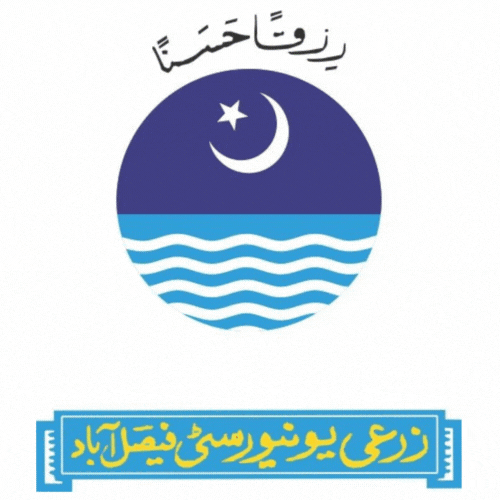
Canadian High Commissioner Greg Giokas visits UAF
Trade ties between Pakistan and India would help in reaping the benefit of competitive advantage for both countries, said Canadian High Commissioner Greg Giokas. He chaired international round table conference titled agricultural policy development and trade liberalization between Pakistan and India arranged by University of Agriculture Faisalabad. A group photo of Canadian High Commissioner Greg Giokas with international round table conference titled agricultural policy development and trade liberalization between Pakistan and India. UAF Vice Chancellor Prof Dr Iqrar Ahmad Khan and former Former Agriculture Secretary Arif Nedeem also seen in the pics He said that the researches should be conducted to identify the areas of competitive advantage. He said that Pakistan was lagging behind in value addition and seed legislation. He said that millions of people in Pakistan are directly linked to the agriculture. The promotion of value addition will not only increase the revenue but also help in flourishing the whole business chain. In Pakistan, he linked the agriculture to the poverty alleviation. He said that the agricultural production had the tremendous potential. With the policy intervention, seed legislation and value chain, the volume of agricultural economy can be increased. He said that Japan is the biggest market in which Canada is selling vegetables worth 4 billion dollar. He called for creating competitive environment and devising public policy with more engagements with the stakeholders. Sharing experience of Canada for evolving consensus on trade ties with US, he said that trade unions severely resisted moves for establishing trade ties with the US and it became major debate in the country, but later on it was realised that the country could secure utmost gain through trade. UAF Vice Chancellor Prof Dr Iqrar Ahmad Khan said that Pakistani Mangoes season peaks in July and August when India’s season is almost over so it can be included in the trade able commodities to take the seasonal opportunity. He said Pakistan has major market arrivals of onion in winter months whereas in India major market arrivals come in summer season. He said consumers in the country at the time of shortfall in domestic production can benefit from this exchange of agricultural commodities of both countries. He said that such roundtable conference provide a platform to devise the comprehensive strategies. He said that Canadian high commissioner is very much keen to bring the both countries close. He said that the Indian mangoes are banned in Europe because of whitefly. Pakistan is also facing the threat of the disease. Chief of Party International Food Policy Research Institute (IFPRI) Stephen Davies said that the such dialogues will open up new avenue of opportunities. Former Agriculture Secretary Arif Nedeem said that for the strengthened ties between the both countries, water issue must be resolved on priority. He also said that trade on competitive advantages will be helpful in addressing the issue of the food for increasing population. He said that the Indian system on subsidy is not durable. Giving presentation, Dr Muhammad Ashfaq, Director Institute of Agri and Resource Economics said that two countries can take advantage of trade benefits by building mutual confidence and trust. He said India is giving heavy subsidy on the agricultural inputs. He said in India, subsidy is 5.2% of GNP and in Pakistan, it is 1.2%. The size of Indian pie is much bigger than Pakistan. He said with the trade, Pakistan can secure 60 to 100 billion dollars. Dr Abdur Ghafoor said that food security is at the heart of national policies in both countries. Ensuring sustainable supply of food commodities is essential element in planning agenda of both countries. He said bilateral trade can facilitate both countries in times of shortage/surpluses but if practiced with mutual respect and on equal footings. MPA Najma Afzal, and UVAS Vice Chancellor Prof Dr Talat Naseer Pasha also spoke.

